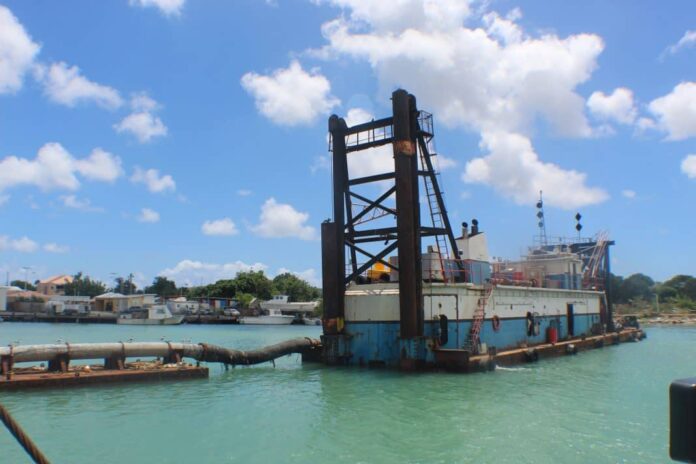Prime Minister Gaston Browne has strongly defended his government’s investment in Blue Ocean Marine, describing it as a strategic move to build national capacity, reduce long-term costs, and retain profits within Antigua and Barbuda.
Speaking on his _Browne and Browne_ show on Pointe FM over the weekend, the Prime Minister said that while the Blue Ocean project is still developing, it is already delivering economic value and will prove profitable in the long run.
“The only one that we’re struggling with right now—and I’m quite sure it will be profitable in the future—is Blue Ocean,” Browne said. “But even now, it is of significant economic benefit to the government.”
He explained that Antigua and Barbuda would have ordinarily paid up to US$40 million to an overseas firm for dredging services, making such projects financially burdensome. Instead, with a US$2.8 million investment securing a 40% stake in Blue Ocean, the government can now undertake dredging and harbor maintenance at a fraction of the cost.
“In a matter of months, we have to start sweeping the harbor again. That’s a US$10 million job. With Blue Ocean, we could bring that down to two or three million,” Browne noted, citing major cost savings from local operations and lower overheads.
Beyond harbor maintenance, the Prime Minister said Blue Ocean will also be used for beach replenishment projects, including work in English Harbour and at National Parks. “They can’t get full commercial value. Anything we do with Blue Ocean, because we have 40% shares, has to be at a good price,” he stressed.
Browne used the opportunity to champion his government’s broader strategy of promoting domestic ownership, citing the acquisition of Scotia Bank by Eastern Caribbean Amalgamated Bank (ECAB) as another success story.
“ECAB never made over $20 million in profits before. Last year, they made over $60 million,” he revealed. “Shareholders are getting record dividends, and tax revenues have increased.”
The Prime Minister also pushed back against past criticism from economist and commentator Everett Christian, who opposed the government’s insistence on local ownership of key financial institutions.
“Christian has no formal training in economics or banking,” Browne said. “But what happened? Both banks are now more profitable, and the country benefits. Ownership is empowerment.”
He argued that by investing in and building national assets like Blue Ocean, the government is reducing dependency on foreign firms, keeping profits local, and creating a sustainable path for economic growth.
“It’s about building a bespoke model—our own capacity—so the profits stay here to help rebuild the economy,” Browne said.


